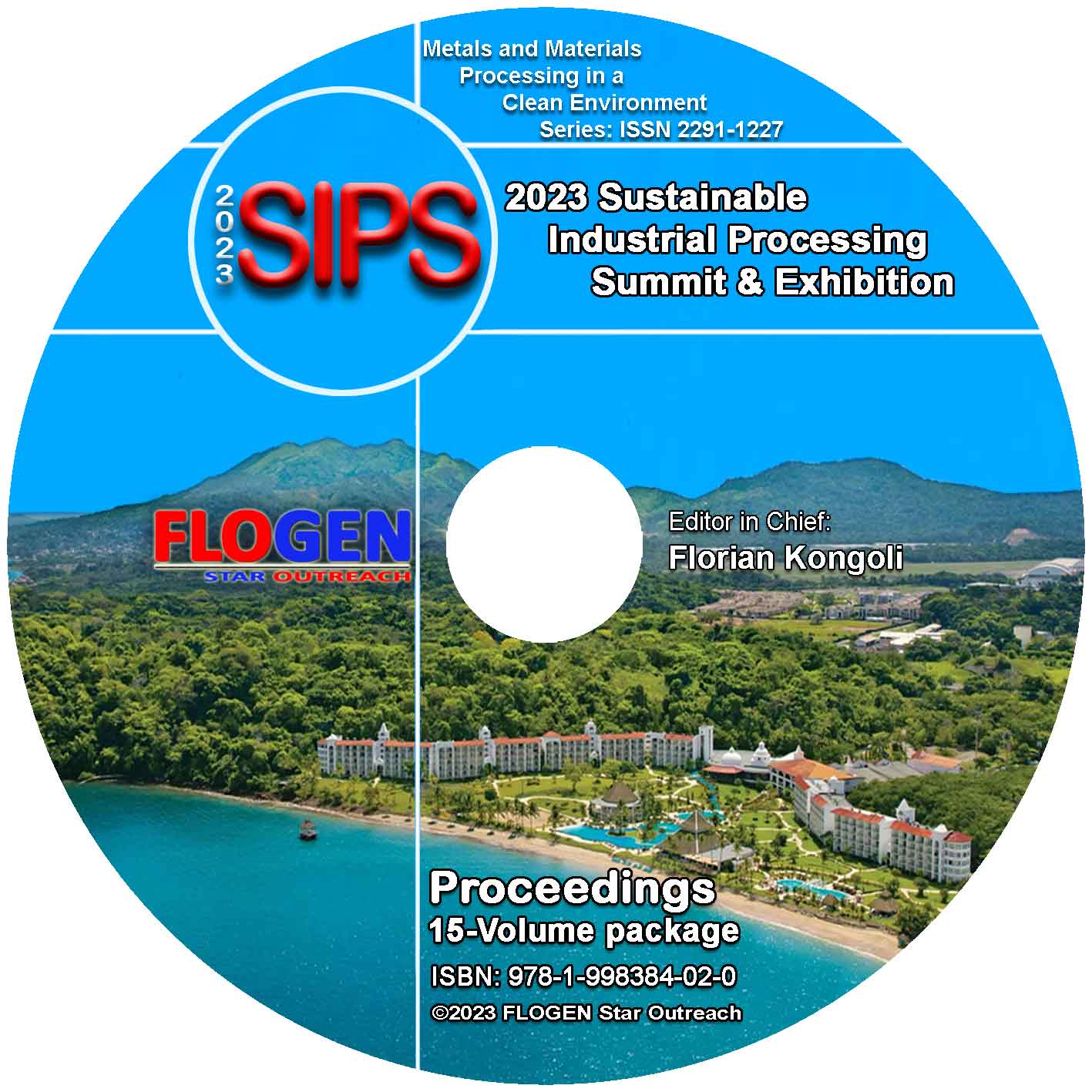2023-Sustainable Industrial Processing Summit
SIPS2023 Volume 9. Navrotsky Intl. Symp. / Geochemistry
| Editors: | F. Kongoli, M. Asta, C. Drouet, S.Hayun, R. Riedel, W. Sun |
| Publisher: | Flogen Star OUTREACH |
| Publication date: | 21 December 2023 |
| Pages: | 142 pages |
| ISBN: | 978-1-989820-88-9 (CD) |
| ISSN: | 2291-1227 (Metals and Materials Processing in a Clean Environment Series) |

CD shopping page
THE MATERIALS CYCLE, SUSTAINABILITY, AND THERMODYNAMICS
Alexandra Navrotsky1;1ARIZONA STATE UNIVERSITY, Phoenix, United States;
Type of Paper: Plenary
Id Paper: 58
Topic: 67
Abstract:
Though the abundances of elements in our galaxy arise from nuclear physics, the materials they form in planetary systems reflect their chemistry, with complex reactions involving gases, liquids, fluids, melts and solids. On Earth we have inherited, from billions of years of geologic processes, mostly at high temperature and pressure, a suite of rocks and minerals which are the source of all materials we make and use. After use, the elements are eventually returned to the Earth as “waste†or “contaminationâ€. This cycle of mining, processing, use, and disposition can be referred to as “cradle to grave†technology. More sustainable technology, involving reuse of “waste†in technology, is sometimes called “cradle to cradleâ€. In either case, the feasibility of each step is determined by thermodynamics, and its rate by kinetics. Using rare earths and actinides as examples, this lecture addresses thermodynamic constraints on mining, extraction, separation, fabrication, corrosion and disposal. Current interest in space exploration and planetary missions, as well as the discovery of myriads of exotic and highly variable exoplanets, place these thermodynamic questions in a much broader context for materials of the universe.